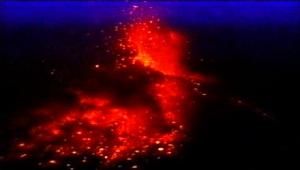Horizon
Volcano Hell (2002x2)
:
It began with a ghastly tragedy. In 1985 the massive Colombian volcano Nevado del Ruiz erupted, melting a glacier and sending a vast landslide of mud down on the people asleep in the town of Armero below. Twenty thousand died.
In the aftermath science was set a challenge: to make sure such a catastrophe never happened again, by finding a way of accurately predicting when a volcano will erupt. Now, at last, it seems that one scientist may have met that challenge.
Anyone can tell when a volcano becomes active. You can see it and you can smell it. But a volcano can be active for years without erupting. For those living nearby, there is no way they will abandon their homes and livelihoods just because of a few rumblings. The only way to persuade them to seek safety is to predict an eruption almost to the day, leaving just enough time for an evacuation.
Scientists threw themselves at the problem, but there just seemed to be no way to make sense of the violent forces at work inside a volcano. Then along came Bernard Chouet. He is different from other volcanologists. His training lay in the complex equations and theories of physics, and he believed the answer had to lie in analysing the mysterious patterns drawn by seismographs. These measure the tremors caused by active volcanoes.
Previous attempts to use these tremors to predict eruptions had proved fruitless. No one could find any correlation between the squiggles on the graph paper and the timing of eruptions. So Chouet locked himself away for five years and then emerged claiming he had found the answer. The key, he said, were seismic signals called long period events. These strange shapes had baffled volcanologists for years.
Chouet said they were made by molten magma resonating - that is coming under pressure - inside the volcano. The more long period events there were, then the nearer the volcano was to exploding. Chouet could use the long period events to predict an eruption to within days.
But
